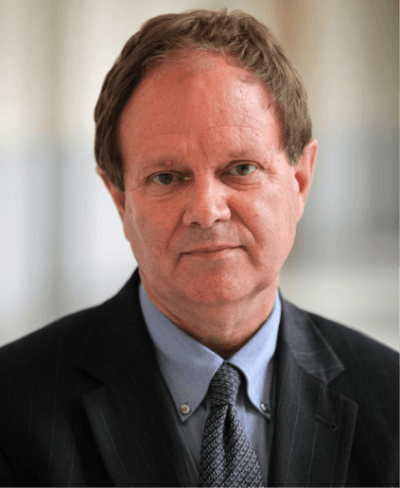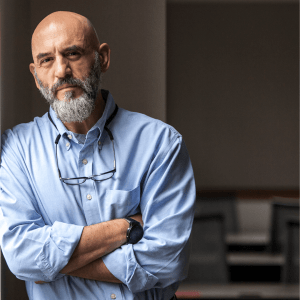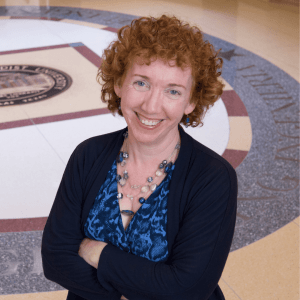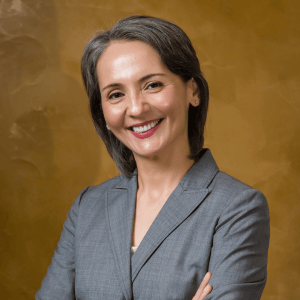
Jeff Snell, Ph.D is a Hunt Institute Fellow. He brings his expertise to the Institute work in the area of Social Entrepreneurship and Enterprise. He serves as Special Advisor to the Dean & Vice Provost for Lifelong Learning at the University of Wisconsin-Madison. His focus areas include teaching social entrepreneurship, applying a social innovation lens to reaching nontraditional learners, and mentoring social entrepreneurs in the UW-Madison Discovery to Product program. His mentored start-ups have garnered best new business awards by local chambers of commerce, receipt of the Morgridge Force for Positive Change award in Wisconsin, and individual national recognitions, including honors from the Manhattan Institute, selection as a Fellow for Ashoka, and receipt of a MacArthur “Genius” Award. Several models are highlighted in his TEDx talks.
Dr. Snell defines social innovation as “a field dedicated to solving social problems—a welcome departure from managing them.” Aligning social innovation models with the values of the surrounding community is a key characteristic of successful SI.
Jeff says, “I believe that social innovation work is, ultimately, about increasing human capability and honoring human dignity. There’s joy to be discovered for everyone engaged in the doing.”
Prior to UW-Madison, Jeff served as Chief Executive Officer at the International Folk Art Market Santa Fe, the largest artisan-social-enterprise accelerator globally and voted “best arts festival” by USA Today readers. Before then he served as Special Advisor to the President, Marquette University, where he the led the school’s Changemaker Campus initiative, resulting in the campus social innovation resource hub; and as Chief Operating Officer at the Argosy Foundation, a private family foundation.
As founder of Midwest Social Innovation, LLC, he has designed regional executive education in social enterprise models, served as Entrepreneurial Mentor for the National Science Foundation’s I-Corps program, and launched a partnership with the New York Times to embed Social Innovation as an interdisciplinary learning tool across the curriculum (selected by the Bill & Melinda Gates Foundation as one of 10 winners in a field of 1,000 proposals from 15 countries).
He completed a Ph.D. at Marquette University where he later received a Distinguished Alumni Award; elected in 2011 to Alpha Sigma Nu, the international honor society for Jesuit colleges and universities; appointed in 2018 as a Fellow at the Hunt Institute for Engineering and Humanity at Southern Methodist University; and appointed in 2019 as Senior Fellow in Social Innovation at ASU’s Lodestar Center. His family lives in Madison, Wisconsin.
To read more about the Hunt Institute’s work to develop future-focused solutions to some of the world’s biggest problems, please click here. For the latest news on the Hunt Institute, follow our social media accounts on LinkedIn, Facebook, and Instagram. We invite you to listen to our Podcast called Sages & Seekers. If you are considering engaging with the institute, you can donate, or sign-up for our newsletter by emailing huntinstitute@smu.edu.






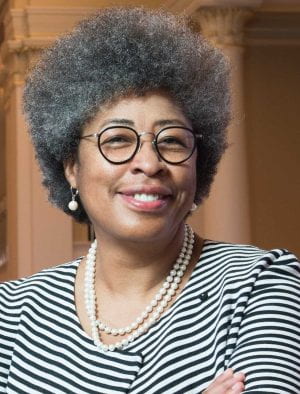
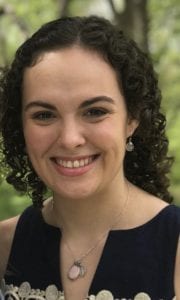 Sara Langone’s work with the Hunt Institute focuses on designing and conducting qualitative research projects at an organizational and community level on topics related to the Hunt Institute’s three pillars of food systems, infrastructure and inclusive economy. Langone’s qualitative approach provides rich, contextualized insight that helps enable the Institute and its partners to better understand communities and create bottom-up solutions to systemic issues.
Sara Langone’s work with the Hunt Institute focuses on designing and conducting qualitative research projects at an organizational and community level on topics related to the Hunt Institute’s three pillars of food systems, infrastructure and inclusive economy. Langone’s qualitative approach provides rich, contextualized insight that helps enable the Institute and its partners to better understand communities and create bottom-up solutions to systemic issues.
